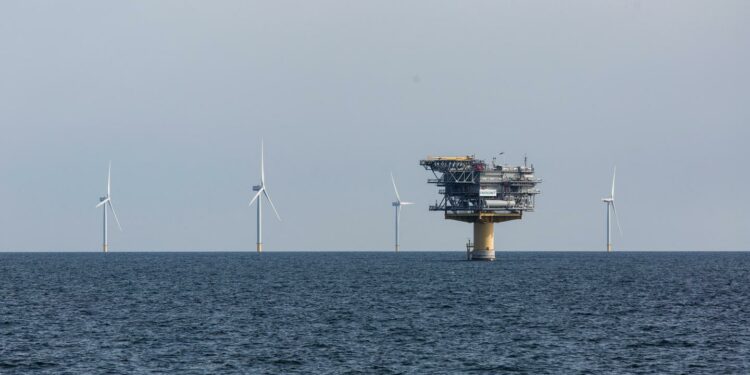The government’s November 4 announcement in Stockholm came as a shock. Of 14 offshore wind farm projects awaiting the green light from the far-right-backed liberal-conservative coalition, 13 have been rejected. The reason provided was the country’s defense interests, against a backdrop of heightened tension with Russia. In Sweden, however, many people are condemning a “political” judgment, which risks further discouraging investors and jeopardizing the kingdom’s energy security.
Entirely decarbonized, 40% of Sweden’s electricity production comes from hydropower plants, 29% from nuclear, 21% from mainly onshore wind, 8% from thermal and 2% from solar. In March, the government estimated that the country would need to generate 300 terawatt-hours (TWh) in 2045 (compared with 160 TWh at present) to cover demand. The 13 sites could have supplied 140 TWh of electricity per year.
But in view of “the serious security situation currently facing Sweden, defense interests must weigh more heavily in the balance,” said Defense Minister Pal Jonson on November 4. In his view, the presence of Russia’s “highly militarized” Kaliningrad enclave makes the Baltic Sea particularly “problematic” for the construction of wind farms. The Swedish armed forces fear that wind farms could weaken the country’s defense system by interfering with military radar and sensors.
Playing into Moscow’s hands
The extent of the government’s veto, however, is controversial. “I fully understand that there may be security-linked reasons,” said Lina Kinning, offshore wind specialist with the Swedish Wind Energy Association. “But the fact that the decision is so categorical and large-scale, while the government is offering no alternatives, is astonishing. It’s impossible not to see it as politically motivated when this announcement comes just a few weeks before the publication of two official inquiries that will impact offshore wind.”
The first inquiry aims to evaluate the so-called “open door” system in place in Sweden, which allows companies to freely make proposals for government approval. “For the army, which finds itself with a multitude of projects, without knowing which ones will be implemented, this can be awkward,” admitted Kinning. Her organization advocates the introduction of an auction system for areas specifically designated for the development of offshore facilities.
Read more Subscribers only The resurrection of Sweden’s nuclear program
In the second inquiry, the Swedish Maritime and Water Management Agency has until December 31 to submit a new marine development plan, enabling increased electricity production off the Swedish coast. But even taking into account the growing tensions in the region, “an outright ban on offshore wind development in large parts of the Baltic Sea (…) makes no sense,” remarked Giles Dickson, WindEurope’s director general, in a statement on November 5.
You have 42.21% of this article left to read. The rest is for subscribers only.
Source link : http://www.bing.com/news/apiclick.aspx?ref=FexRss&aid=&tid=673ceac9a8194df380200682ee9ca049&url=https%3A%2F%2Fwww.lemonde.fr%2Fen%2Feconomy%2Farticle%2F2024%2F11%2F19%2Fsweden-pours-cold-water-on-offshore-wind-power_6733369_19.html&c=3206401201879458692&mkt=de-de
Author :
Publish date : 2024-11-19 10:49:00
Copyright for syndicated content belongs to the linked Source.


